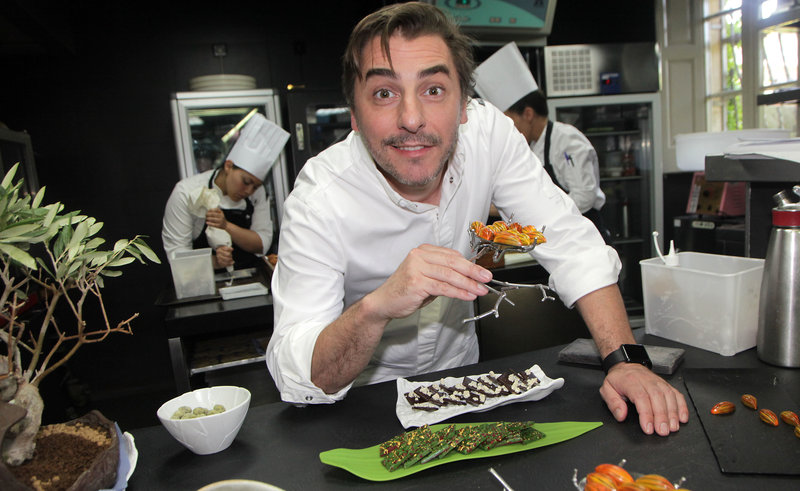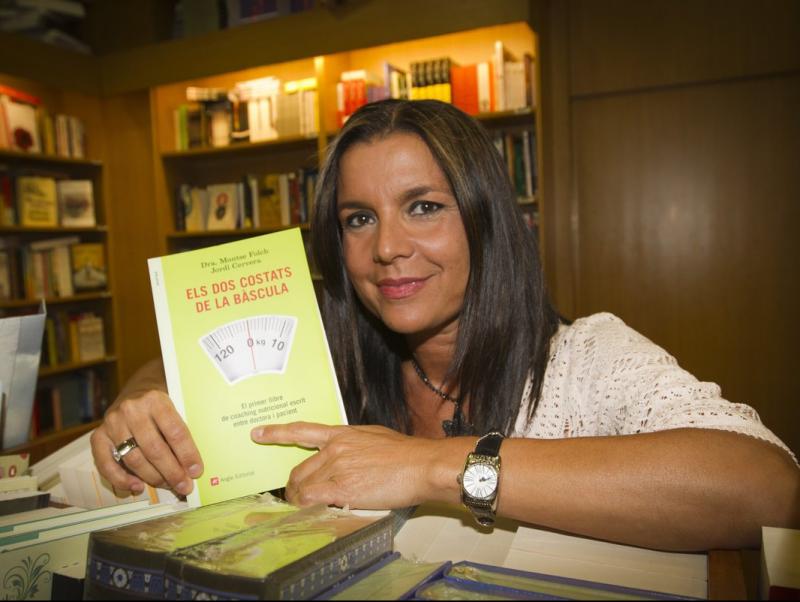It’s hard to say whether desserts are cookery or not. Desserts often straddle that threshold between the conceptual and the frivolous, but what is certain is that tHEY can end up making your day
You are the subject of an episode of the latest season of the Netflix show ‘Chef’s Table’, which is devoted to pastry chefs.
Desserts are that sweet part of the meal that is hard to say whether it is cookery or not. It often straddles that threshold between the conceptual and the frivolous, but what is certain is that it can end up making your day. It’s something that can interest the diner and wake them up by combining three essential elements: provocation, surprise and technique.
On the programme, you say you weren’t sure you wanted to go into the food business, but your brothers, both more than 10 years your senior, expected you to one day get involved.
They knew how to wait and give me space. They have played an incredible role and knew how to get the best out of me, how to make me think. I remember, for example, that Josep would bring me new products and would encourage me to include them in my dishes. He challenged me and stimulated me into opening new paths. And Joan would always take me to congresses to introduce me to the world of cookery.
How did meeting Damian Allsop influence your career?
At the time I worked the summers in a kitchen where there were only four of us. A young team in which I was the younger brother of the two bosses. It was not ideal because one way or the other I wasn’t treated the same as the others. When Damian arrived as pastry chef it was a shock. He was someone from abroad, an Englishman, who knew a lot and who, unlike most, had not studied in the Hostelry School. In other words, without filters. We established an amazing partnership. He didn’t let me get away with anything, he pushed me and he challenged me and showed me things no one else had. He made me fall in love with the profession at a time when I didn’t think that much of desserts.
When Allsop had an accident and you had to take over as pastry chef, you started developing your first great desserts, such as ‘Viatge a l’Havana’.
Yes, that was my first great creation. Making smoke edible was a bit of fun. Smoke is disgusting, and even more so in a kitchen. But trying it out was something new and everyone would ask “What is that?” I didn’t know where it would take me but I knew it would open new paths, that it was fun and I liked doing it.
What dessert are you most proud of?
Every time I make a new one I try to make it the best dessert in history and the world. This is my commitment and, obviously, that I myself am satisfied with it. So, Banana a la carbonara, my latest creation, I would say is the dessert I am most proud of.
Your creations often have a ‘punk’ or ‘pop’ feel about them. What influences you most?
It may seem like a cliché but whatever moves me, whatever I create an emotional link with. Eight years ago, when I published the book, Anarkia, a visit I made to the Tate Modern gallery in London had a big effect on me. I was amazed by the colours used by artists like Kandinsky, and in which every line on the painting made sense and transmitted emotion. I am not a big football fan, but when you see some of the things Messi does, you have to surrender to it, it is pure creation! The more pop influence –with ice creams like Helado oscuro, inspired in Darth Vader, or the ice cream hand of the Kingslayer from Game of Thrones– can be seen more in the Rocambolesc ice cream shops.
How does it feel to see people travelling from all over the world just to come to Girona and visit your restaurant, or even people from here making a special effort just to taste your dishes?
It makes an impact; I still find it hard to believe. Yet, it is also a double-edged sword, an extra pressure on you not to disappoint. It forces you to constantly maintain discipline. When we changed premises, I felt a strong pressure, it upset me a lot and I had a bad time of it. Yet, I remember that the heaviest pressure I have felt was when we were named the fifth-best restaurant in the world. It was not even so bad when we were ranked first or when I was given the prize for the best pastry chef in the world. But fifth, I don’t know why that was. When Joan rang me to tell me, my answer was: “And what now?” Not knowing what to expect creates internal confusion. The time people give you is the same whether they are from Anglès or from Australia. People come here because of what we are and the way we are. I know that now, and I am relaxed and comfortable with it.
What are your limits?
Limits? You put your own limits. Experience tells me you can always do new things, everything is there to be discovered. Everything we don’t know is there to find out.
food interview


